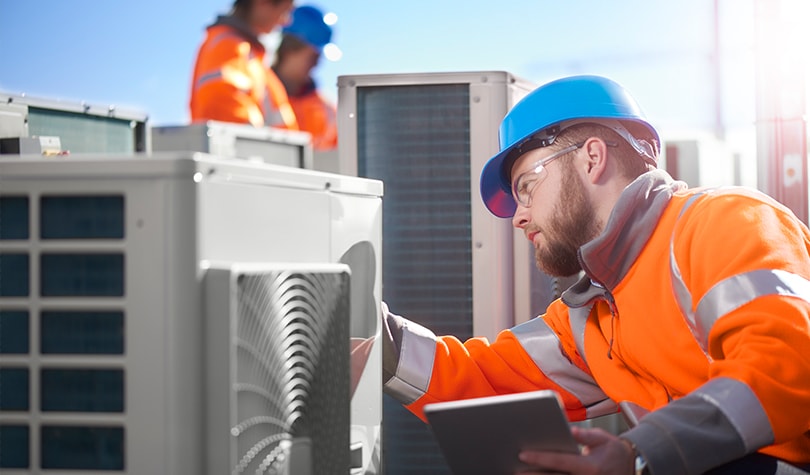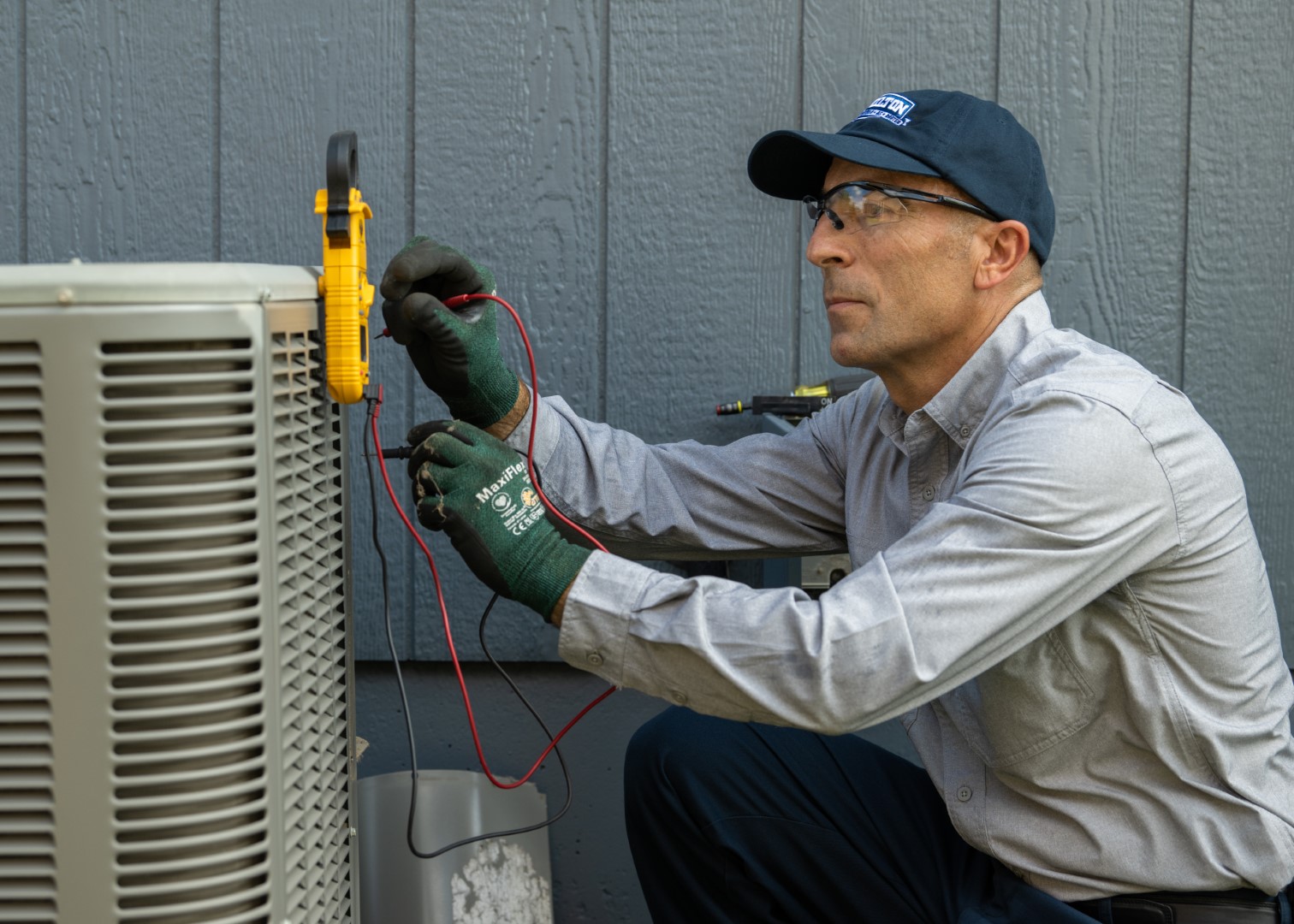AC unit replacement FAQs: expert responses
The Relevance of Cooling And Heating Knowledge: Discovering Reasons For AC Problems for House Owners
House owners frequently ignore the relevance of comprehending their a/c systems. Recognizing common signs of air conditioning problems can cause prompt interventions. Issues like insufficient cooling or unusual noises are not just aggravations; they can show deeper concerns. By checking out the origin triggers of these troubles, home owners can improve system effectiveness and extend its life expectancy. What are the most prevalent problems that can develop, and exactly how can they be efficiently resolved?
Typical Indications of A/c Troubles
Just how can homeowners recognize problems with their cooling systems before they escalate? Recognizing usual indications of air conditioner problems is essential for prompt maintenance. One widespread indicator wants cooling; if the air conditioning system fails to lower the indoor temperature level, it may indicate underlying concerns. Uncommon sounds, such as grinding or hissing, can also indicate mechanical failings or loose elements - Fix broken Air conditioner. Furthermore, property owners must be wary of unusual smells emanating from the unit, which may recommend mold development or electrical issues. Regular cycling on and off, called brief biking, can suggest thermostat issues or refrigerant leakages. Additionally, a rise in power costs without a matching increase in usage might indicate ineffectiveness. By staying alert to these indication, home owners can avoid more significant problems and expensive repair work, guaranteeing their cooling systems run effectively throughout the warmer months

Recognizing Refrigerant Issues
Refrigerant concerns can substantially impact the performance of an a/c system. Home owners must understand the indicators of reduced refrigerant degrees and the value of finding refrigerant leakages. Addressing these issues immediately can prevent further damage to the system and guarantee peak cooling performance.
Reduced Cooling Agent Degrees
A common problem that home owners may run into with their cooling and heating systems is reduced refrigerant degrees, which can significantly affect the system's effectiveness and efficiency. Cooling agent is essential for the cooling procedure, soaking up heat from interior air and releasing it outside. When levels drop, the a/c system struggles to cool the room effectively, leading to boosted power consumption and prospective system pressure. Signs of reduced cooling agent consist of poor cooling, longer run times, and ice formation on the evaporator coils. Property owners might additionally see unusual sounds as the compressor functions harder to make up for the deficiency. It is very important for property owners to comprehend the relevance of maintaining correct cooling agent degrees to assure peak a/c efficiency and longevity.
Refrigerant Leaks Detection
Where might a property owner begin when faced with the opportunity of cooling agent leaks in their heating and cooling system? The primary step entails checking the system's efficiency. Indicators such as reduced cooling performance, ice development on coils, or hissing noises may suggest a refrigerant leakage. Home owners need to likewise inspect for visible indications of oil residue, frequently a warning indicator of a leakage. Using a cooling agent leakage detector can give even more accurate identification. If uncertainties continue, consulting a certified HVAC technician is essential, as they possess the know-how and devices to locate leakages efficiently. Trigger discovery and fixing of refrigerant leakages not just improve system effectiveness however likewise stop prospective environmental injury, making it an important element of HVAC upkeep.
Electric Failures and Their Effect
Electrical failures can considerably impact HVAC systems, especially with concerns like breaker breakdowns and malfunctioning circuitry. These issues not only interfere with the system's performance yet can also result in pricey repair services and safety and security risks. Recognizing the implications of such failings is crucial for property owners to keep an efficient and secure heating and cooling environment.
Circuit Breaker Issues
Exactly how can circuit breaker concerns affect the performance of an a/c system? Circuit breakers work as critical safety and security devices that handle electric flow to HVAC systems. If a breaker trips often, it interferes with power supply, causing inconsistent heating or air conditioning. This can create considerable stress on the system, causing inefficient operation and possible damage to components. Home owners might discover raised energy expenses because of the HVAC system's struggle to maintain preferred temperatures. In addition, duplicated interruptions from tripped breakers can shorten the life expectancy of the a/c device, requiring pricey repair work or substitutes. Routine maintenance of circuit breakers is critical, as it assures a secure power supply, inevitably enhancing the general performance of the HVAC system.
Faulty Circuitry Effects
Regularly overlooked, faulty circuitry can have alarming repercussions for a/c systems. Wiring issues may lead to short circuits, resulting in frequent failures and increased repair service prices. In enhancement, incorrect wiring can cause ineffective power usage, bring about greater utility bills and pressure on the system. In serious situations, malfunctioning electrical wiring can trigger electric fires, posing a considerable safety danger to home owners. These electrical failings can harm Cooling and heating elements, resulting in expensive substitutes or extensive repair services. Home owners must prioritize regular evaluations by certified professionals to determine and rectify circuitry problems prior to they escalate. Comprehending the implications of malfunctioning electrical wiring can help guarantee the longevity and security of cooling and heating systems, eventually protecting both the home and its passengers.
Clogged Filters and Their Consequences
While lots of house owners may forget the significance of normal filter upkeep, blocked filters can bring about significant repercussions for cooling and heating systems. When filters become obstructed with dirt, dust, and particles, air movement is restricted. This reduction in airflow requires the system to function harder, bring about enhanced power intake and potentially higher utility bills. Gradually, this pressure can trigger damage on elements, Read More Here resulting in premature system failure.
Furthermore, clogged up filters can endanger interior air high quality. Pollutants and irritants may distribute throughout the home, worsening respiratory problems and allergic reactions for owners. Furthermore, inadequate airflow can create the evaporator coil to ice up, causing pricey repair work and ineffective cooling performance. Frequently altering or cleansing filters is a basic yet crucial upkeep job that can aid ensure the long life and efficiency of heating and cooling systems, eventually benefiting click here for more both the property owner's convenience and their financial resources.

Thermostat Malfunctions Described
What takes place when a thermostat breakdowns can considerably affect both convenience and power performance in a home (Fix broken Air conditioner). A malfunctioning thermostat may fall short to precisely review the temperature, causing overcooling or insufficient cooling. This discrepancy can cause discomfort for occupants and lead to higher energy expenses, as the heating and cooling system functions harder than necessary
Typical issues include dead batteries, which can render digital thermostats faulty, and loosened circuitry that interrupts interaction in between the thermostat and the a/c device. In addition, out-of-date or badly calibrated thermostats may not respond properly to temperature adjustments, even more intensifying power inadequacy.
Homeowners should be alert for signs of breakdown, such as irregular temperatures or unforeseen energy expenses. Regular checks and understanding of the thermostat's functionality can help recognize problems early, making sure peak efficiency of the HVAC system. Resolving thermostat problems without delay is necessary for preserving a comfortable living atmosphere and managing energy consumption successfully.
The Duty of Routine Upkeep
Normal upkeep plays an essential function in making sure the durability and effectiveness of heating and cooling systems. House owners who prioritize regular checks can avoid minor issues from escalating into expensive fixings. Regular maintenance usually includes jobs such as cleaning up filters, examining ductwork, and inspecting cooling agent degrees. These activities help keep perfect airflow and system efficiency, reducing power consumption.
A well-kept HVAC system operates a lot more efficiently, providing regular comfort throughout the home. Regular tune-ups can also prolong the life expectancy of the system, leading to considerable cost savings gradually. Property owners are encouraged to set up professional inspections at the very least once a year to recognize prospective issues early.
Furthermore, numerous suppliers need regular upkeep to copyright guarantees, making this practice not just beneficial yet frequently essential. On the whole, recognizing the significance of regular upkeep empowers house owners to guard their cooling and heating systems versus unexpected failures and enhance their investment in home convenience.
Often Asked Questions
How Can I Boost My Ac's Energy Performance?
Improving an a/c's energy efficiency entails routine maintenance, cleaning or replacing filters, securing ductwork, making certain appropriate insulation, making use of programmable thermostats, and organizing specialist inspections to identify and rectify possible problems impacting efficiency.
What Is the Lifespan of a Typical A/c Unit?
A typical a/c device has a lifespan of 15 to two decades, depending on maintenance, usage, and environmental elements. Normal upkeep can greatly prolong its operational life and boost general performance.
When Should I Replace My Cooling System?
An air conditioning system should typically be changed every 10 to 15 years. Signs for replacement include frequent repairs, rising power costs, and insufficient cooling, showing that an upgrade may be a lot more cost-efficient and reliable.
Can I Troubleshoot Air Conditioning Troubles Myself?
Yes, people can repair AC issues themselves by checking filters, making certain power supply, and checking for visible concerns (air conditioner repair). Complex problems usually require specialist assistance for exact diagnosis and secure repair, ensuring excellent system performance.
Just how Do I Choose a Trustworthy Cooling And Heating Specialist?

To pick a dependable heating and cooling technician, one ought to look for suggestions, inspect on-line testimonials, confirm licenses and insurance, analyze experience, and demand in-depth quotes to ensure top quality solution and fair rates prior to making a decision.
Conclusion
To sum up, a strong understanding of HVAC systems allows house owners to efficiently detect and resolve typical cooling issues. Identifying signs such as insufficient cooling or climbing power costs permits prompt interventions, which can considerably enhance system effectiveness and long life. By remaining informed regarding possible issues like refrigerant leakages, electric failings, and clogged up filters, home owners can take positive measures to keep their systems, eventually making sure convenience and advertising a much healthier living setting. Routine maintenance stays vital to this read the article undertaking.